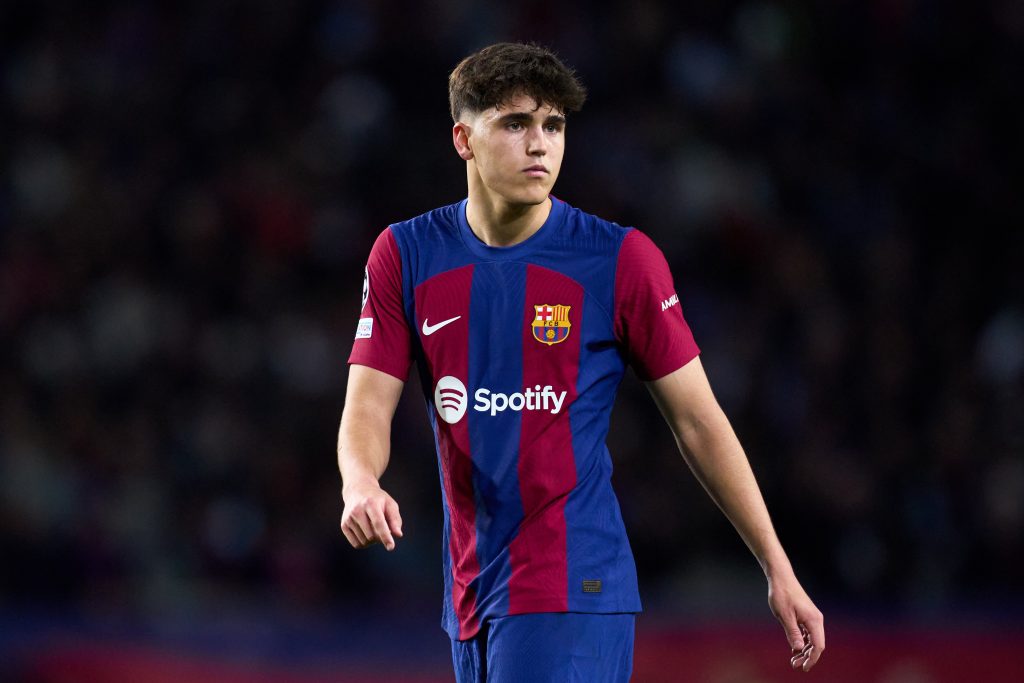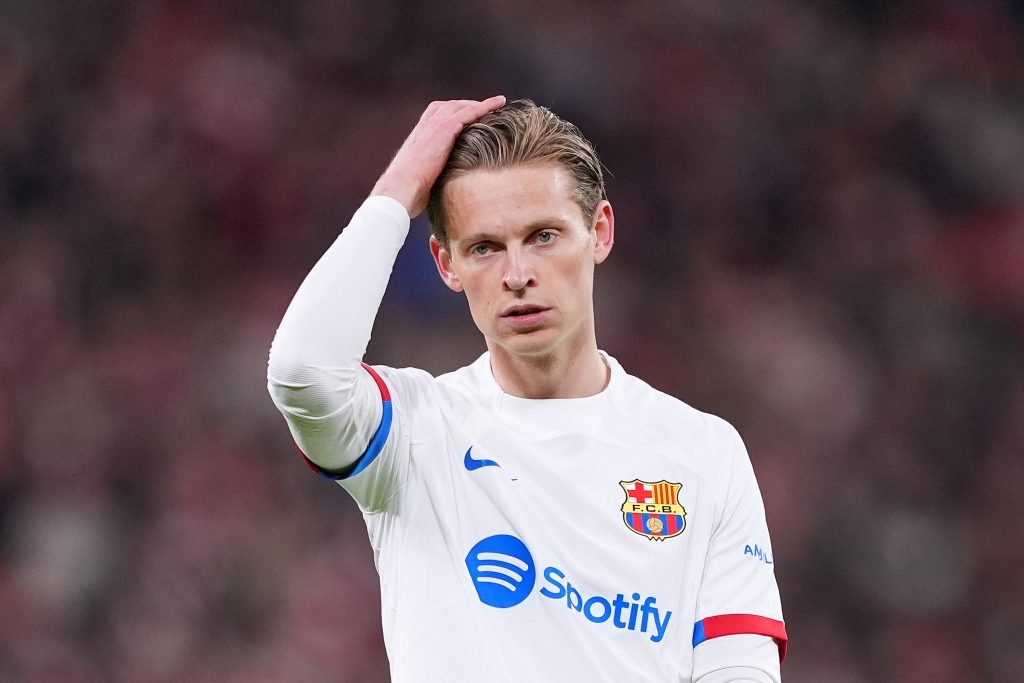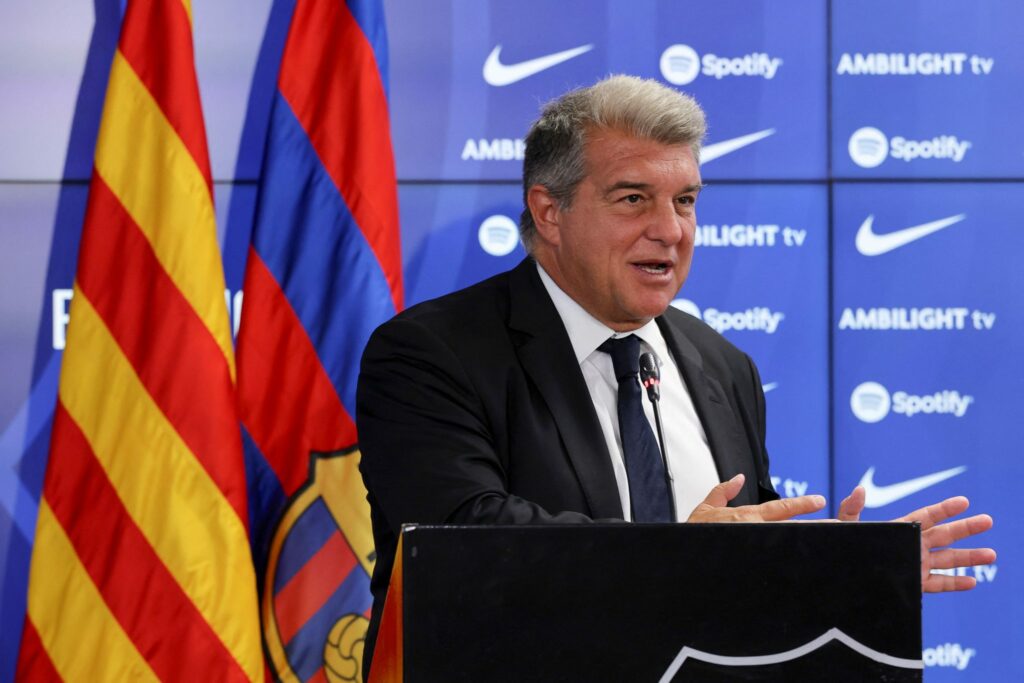In a recent interview, Joan Laporta, the president of Barcelona, elucidated the club’s stance on various fronts in anticipation of the forthcoming season. One significant aspect clarified by the club president pertained to the potential sale of prominent players.
Given their precarious financial situation, the Catalans are facing pressure to generate revenue to facilitate the acquisition of necessary players for the upcoming season. Laporta stated, “We have received offers for Alejandro Balde, Fermin, as well as for key players like Gavi, Pedri, de Jong, and Araujo. However, we are not inclined to part ways with them. Merely considering the aforementioned players, our potential income would amount to €1 billion.”
This declaration has prompted speculation regarding how Barcelona intends to navigate the summer transfer window without resorting to player sales. Upon closer examination, two primary reasons emerge why offloading marquee players would not be a prudent course of action for the Blaugranas.
Reason 1: The sporting project

Numerous players from Barcelona command exorbitant valuations on the transfer market and garner significant interest from potential suitors.
In accordance with market trends, younger players possessing greater potential for longevity and growth tend to attract substantial transfer fees. Consequently, Barcelona also perceive their emerging talents and graduates from La Masia as the focal points of attention.
Nevertheless, contemplating the sale of individuals such as Pedri, Gavi, Lamine Yamal, Pau Cubarsi, or Ronald Araujo would represent a severe setback to the club’s future sporting endeavors.
Given these circumstances, executing a major transfer appears intricate and fraught with complexities.
Reason 2: FFP complications
While it is true that Barcelona is in urgent need of sales to address their financial woes, the prospect of sacrificing a key player presents a dilemma, as it offers no immediate financial respite.
Despite implementing wage reductions, Barcelona’s salary expenditure remains significantly above the established limit. Moreover, the awaited €40 million payment from Libero has yet to materialize, with any incoming funds earmarked for this obligation.
The confluence of these factors, compounded by the stringent financial regulations enforced by La Liga, suggests that Barcelona will face challenges in securing a suitable replacement should they part ways with a prominent player this summer.
In fact, the likelihood of Barcelona being able to procure a replacement appears slim under the current circumstances.
Case study – Explaining the FFP issue

If Barcelona were to sell Frenkie de Jong for a significant sum of €100 million in June, they would only be able to allocate a portion of the funds saved.
Under the terms, Barcelona would be permitted to allocate 60% of the player’s wages that would be removed from their books (equating to €18 million per season), resulting in a figure of €10.6 million.
Additionally, they would only be allowed to utilize 35% of the amortized value of the player. Considering the remaining two seasons of his contract account for €24 million of the €100 million received, Barcelona could only utilize 35% of €76 million, amounting to €26.6 million.
The total savings of €37.4 million, however, would be directed towards covering the penalty for Libero’s default, leaving no room for a new signing.


